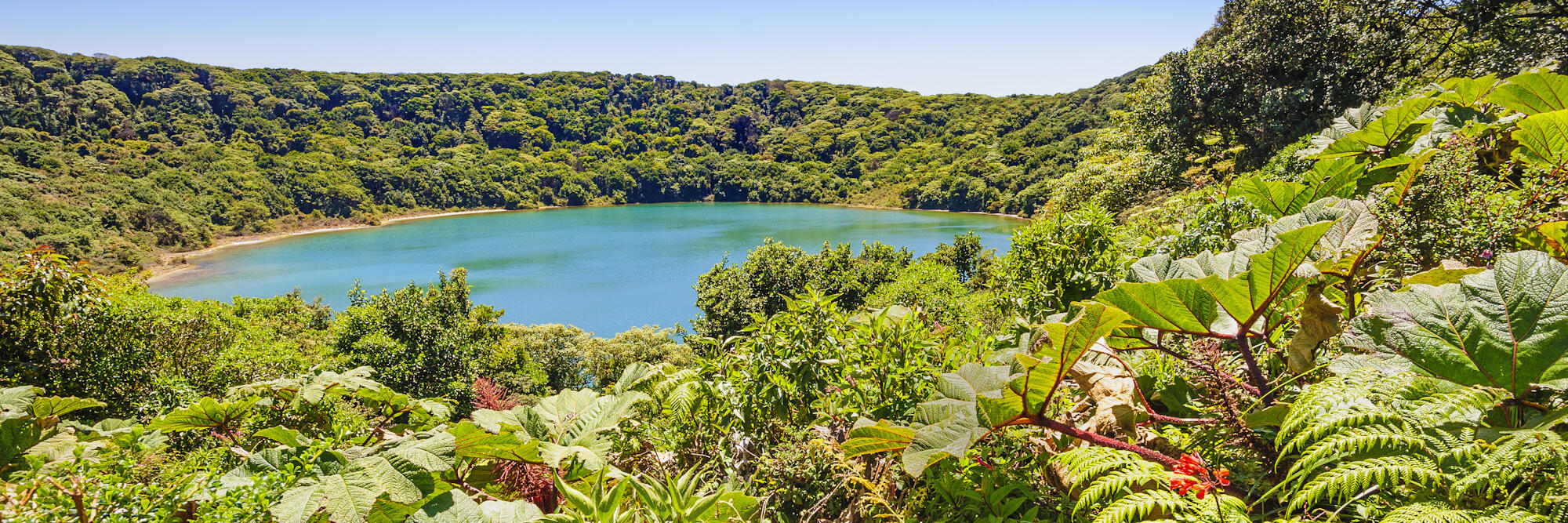Christopher Howard is an American expat who has lived in the Central American country of Costa Rica for almost 35 years. He is now a citizen of the country and runs a tour business. Here, he shares his thoughts on how expats can happily settle into their new lives.
Get more information on life in Costa Rica by reading our Expat's Arrivals Costa Rica Guide or reading more expat experiences.
About Christopher
 Q: Where are you originally from?
Q: Where are you originally from?
A: California, but I have lived in Costa Rica for 35 years and am a citizen. Part of my formal education was in Mexico.
Q: Where are you living now?
A: Heredia, Costa Rica.
Q: When did you move here?
A: 1980.
Q: Did you move here alone or with a spouse/family?
A: Alone, but got married in 1988.
Q: Why did you move; what do you do?
A: I moved here because of my love for the culture and the people. I have degrees in Latin American Studies with an emphasis on history and a graduate degree in Spanish and Bilingual Education.
Living in Costa Rica
Q: What do you enjoy most about your Costa Rica?
A: Costa Rica offers a high quality of life that is better in a lot of ways than the USA.
Q: Any negatives? What do you miss most about home?
A: More good than bad. Sometimes I miss certain foods and products.
Q: What are the biggest adjustments you had to make when settling into expat life in Costa Rica?
A: Since I had lived and studied in Latin America and was very familiar with the culture, I adjusted quickly.
Q: What’s the cost of living compared to home?
A: In general the cost is lower. Imported goods are expensive.
Q: How would you rate the public transport?
A: Public transportation is excellent. The bus system is affordable and you can go anywhere. A car is not necessary.
Q: How would you rate the healthcare in Costa Rica?
A: It’s excellent and affordable but not perfect, as in all countries. The longevity rate is comparable with many first world nations. We have both a public and private system. Metropolitan, Clínica Bíbilica, Cima and Clínical Católica are the best private hospitals. Many foreigners come here for joint replacement, cosmetic dentistry and plastic surgery.
Q: What are the biggest safety issues facing expats living in Costa Rica?
A: Compared to the other countries in the region, Costa Rica is very safe. No society is crime-free.
Q: How do you rate the standard of housing?
A: Housing is plentiful with apartments and homes readily available.
Q: Any areas you’d recommend for expats to live in?
A: Costa Rica offers many places to live, including the Central Valley or all along the Pacific Coast. The former is very popular because of the year-round spring-like weather.
Meeting people and making friends in Costa Rica
Q: How tolerant are the locals of foreigners?
A: Very tolerant.
Q: Was it easy meeting people and making friends?
A: Yes, because expats tend to gravitate towards each other. There are many opportunities to meet people here. Costa Rica is a very user-friendly country for foreigners. There are a lot of clubs and opportunities to meet new people. And it’s easy to meet the locals as well as other expats.
About working in Costa Rica
Q: Did you have a problem getting a visa or work permit? Did you tackle the visa process yourself or did you enlist the services of an immigration consultant?
A: I am a citizen, so I can work here legally. Foreigners need a work permit or residency with permission to work. There are opportunities for entrepreneurs, especially online.
Q: What’s the economic climate like in the city? Do you have any tips for expats looking to find a job there? Which resources did you find most useful?
A: Look in the English online publications for work and talk to people here.
Q: How does the work culture differ from home? Do you have any tips for expats doing business in the city/country?
A: If they are going to hire the locals the labour laws are strict. It is important to know some Spanish and have a good lawyer to deal with workers in some cases.
Family and children in Costa Rica
Q: What are the schools like, any particular suggestions?
A: The schools are good. Both private and public schooling are available. All children have to wear uniforms to school. The universities are dirt cheap when compared to similar US or Canadian institutions. The quality of education is excellent.
And finally…
Q: Is there any other advice you would like to offer new expat arrivals?
A: Learn the language, make a lot of friends, remember you are guests in a country and have to adapt. The country is not going to change for you.
► Interviewed in May 2015



